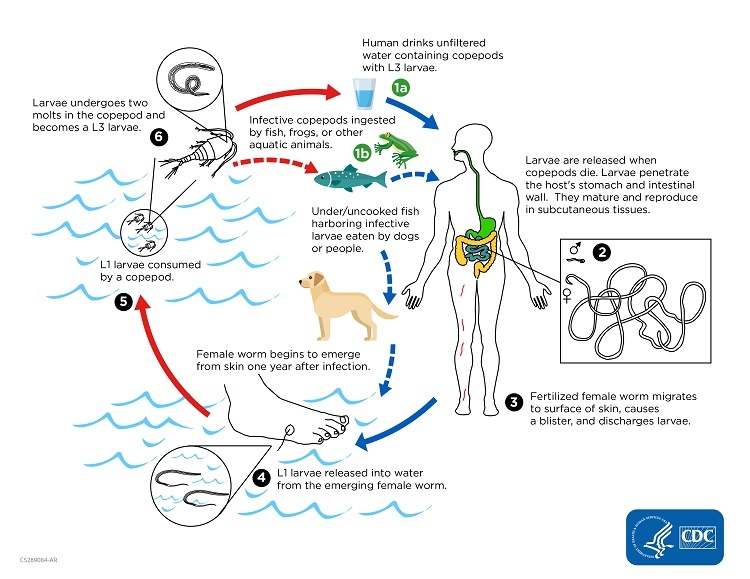Guinea worm disease remains on the cusp of being eradicated, with the global number of cases in 2023 holding steady at 13, according to a provisional account released by The Carter Center.
Facebook moms: Hold my seltzer
“Lose weight and rejuvenate dry leg skin with this one weird trick!”
Fuck I wish I could laugh at this but I wouldn’t put it past some whack-ass facebook winemommy group doing this exact thing…
I mean there are people who advocate infection parties for fucking chicken pox…
After reading the article, I’m confused about how it works. Guinea worms are parasites that you get infected with from bad water sources. Unless you eradicate the source (e.g. the worms themselves), can you really say that you’ve eradicated the disease? Even if we go a decade without any human contracting it, it’s no harder for someone to contract it by drinking contaminated water than it is today. It’s not like a viral disease, that simply stops existing if infection numbers drop to 0 for a while.
That being said, it’s great that numbers are as low as they are. Education and better water infrastructure is helping.
After reading the article, I’m confused about how it works. Guinea worms are parasites that you get infected with from bad water sources. Unless you eradicate the source (e.g. the worms themselves), can you really say that you’ve eradicated the disease?
Many diseases can likely never be eradicated because they have a natural reservoir, some wild population of animal species in which the disease normally propagates. A natural reservoir will keep the disease in circulation and reinfection of humans can occur from contact with species in the natural reservoir. Ebola virus is like that, it keeps popping up now and then because it has a natural reservoir (believed to be fruit bats).
Guinea worms isn’t like that, which is part of why it’s a strong candidate for eradication. Its reproductive cycle has a step that primarily goes through people or dogs, neither of which would be considered a natural reservoir:

As such, if we reach a state where there are no infected people or dogs then guinea worm could go extinct. There would be larvae left in the wild at that point, but as long as those larvae don’t infect a suitable host then they never become worms. No new worms means no new larvae, and larvae have a fairly short lifespan so we would only need to maintain that situation for maybe a few years before we could confidently say that guinea worm has been eradicated (i.e. any remaining larvae must be dead by that point).
That makes sense, thanks. I wasn’t sure whether they included animals in the goal.
This is the best summary I could come up with:
ATLANTA (AP) — Guinea worm disease remains on the cusp of being eradicated, with the global number of cases in 2023 holding steady at 13, according to a provisional account released by The Carter Center.
But the initial count matches the confirmed number of human cases in 2022, after 15 were recorded in 2021.
Global cases numbered about 3.5 million in 1986, when former President Jimmy Carter announced that his post-White House Carter Center would prioritize eradication of the parasitic disease that affected developing nations in Africa and Asia.
Nine of the 13 provisional human cases in 2023 occurred in Chad, two in South Sudan and one each in Cameroon and Mali.
Pregnant female worms often emerge from painful blisters on a host’s skin.
“Without any vaccine or medicine, Guinea worm disease is disappearing because everyday people are careful to filter their water, tether their animals, properly dispose of fish entrails, and keep their water sources safe,” Hopkins said in a statement, “because they care about their communities, families, and the people they love.”
The original article contains 435 words, the summary contains 174 words. Saved 60%. I’m a bot and I’m open source!
Hell yeah, what a horrific parasite
Don’t worry everybody, I’m sure we can turn this around somehow!
Maybe like the antivax movement we will see an emergence of an anti-purified water movement, where good ol natural unfiltered water is considered the best for you because your not removing all the natural protein and minerals present in sediment rich water.






